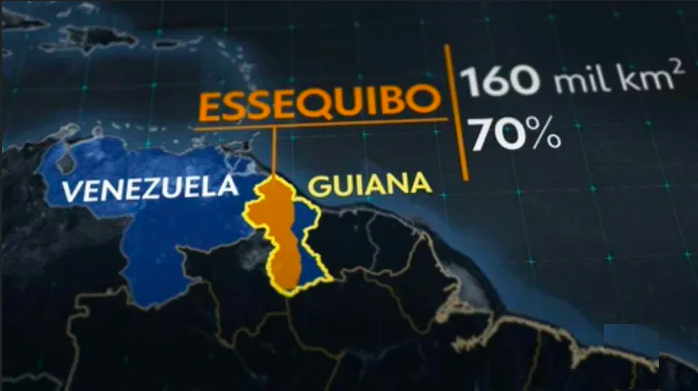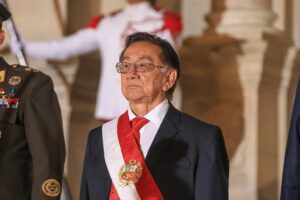
Published 12/02/2023 16:52 | Edited 12/04/2023 08:40
On December 3, Venezuelans will participate in a consultative referendum to answer five crucial questions related to the territorial dispute between Venezuela and Guyana over Essequibo, a region of the neighboring Amazonian country. The questions, prepared by the Maduro government, range from the rejection of the Paris Arbitral Award of 1899 to the creation of the state of Guyana Essequiba.
International analyst Ana Prestes, on her social networks, shared information about the referendum, highlighting the historical and legal complexity behind the dispute. The questions proposed, apparently addressing themes of history and international law, have deep roots that date back to the Paris arbitration award of 1899.
This week’s consultative referendum leaves Venezuelans facing crucial decisions on how to approach the territorial dispute. Ana Prestes’ analysis highlights not only the complexities of the issues presented, but also the urgency of a diplomatic solution to avoid a worsening of regional tensions. The future of Essequibo remains uncertain, and the results of the referendum will have significant implications for geopolitical relations in Latin America.
The arbitration award, which removed 90% of the disputed territory from Venezuelan hands, was the result of a disadvantageous agreement brokered by the United States. Ana Prestes recalls the anti-Venezuela plot, revealed in 1949, which involved the manipulation of arbitration to harm the South American country.
Since the 1960s, the Venezuelan government has sought the cancellation of the Paris arbitration at the UN. The 1966 Geneva Agreement, established to seek a peaceful solution, is cited as the only valid legal instrument for the controversy. However, progress on this agreement was limited, with comings and goings over the years.
The entry of Exxon Mobil in 2015, carrying out activities in Essequibo, intensified the dispute, deteriorating relations between Venezuela and Guyana. The rise in tensions coincided with international pressure on Venezuela, including sanctions, attempts to impose a self-proclaimed president and diplomatic pressure.
The International Court of Justice (ICJ) entered the controversy in 2020, after declaring itself competent to recognize Guyana’s unilateral request, based on the 1899 arbitration award. However, Venezuela refuses to recognize the jurisdiction of the ICJ, maintaining its position to seek a peaceful solution based on the Geneva Agreement.
Currently, six oil companies operate drilling oil wells in the waters close to Essequibo, where 11 billion barrels have already been discovered. This discovery significantly increased the tension surrounding the historic conflict, further complicating relations between the two countries.
Tomorrow, December 3rd, Venezuelans will go to the polls to answer 5 questions in a consultative referendum that may or may not approve the conduct of the Maduro Government in relation to the territorial dispute with Guyana over Essequibo. Below are the questions and a brief analysis in the form of a thread🧵 pic.twitter.com/XrDwLabPZN
— Ana Prestes (@anaprestes) December 2, 2023
Source: vermelho.org.br

